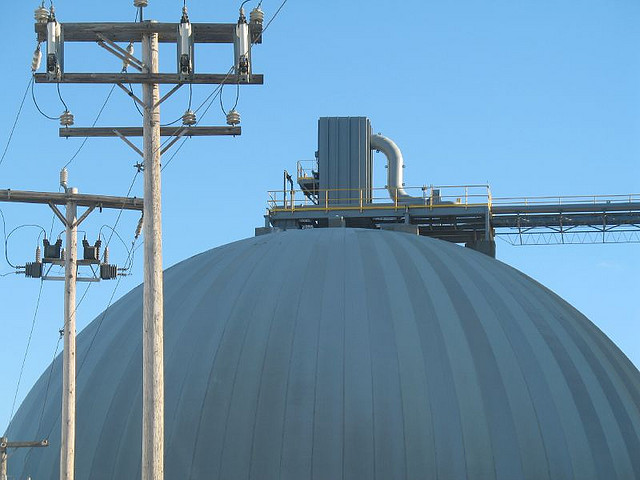Well, we saw this coming but it’s still sobering to see it in black and white. The B.C. government’s decision to cut its proposed LNG Income Tax in half (from 7 per cent to 3.5 per cent) is simply a cave-in to industry. It’s a massive giveaway of a public resource to global corporations by a desperate government who put all its eggs in one basket.
Not that we should be surprised. The recent trend in B.C. has been to give away its gas resources for next to nothing. The idea behind the LNG Income Tax was to capture some of the windfall profits from exporting to Asia, to be used for the public benefit. On this basis, we were promised a $100 billion Prosperity Fund, a debt-free B.C., lower taxes and better public services.
These claims were unrealistic at the proposed 7 per cent rate from February’s budget. At the lower rate they will be a pittance. First off, companies are able to deduct the full capital costs of their LNG plant investment before they pay the full (now 3.5 per cent) tax. This could take 6-12 years depending on what price they are able to get in Asia. If there are capital cost over-runs, as in the case of Australian LNG or Canadian tar sands, it could be as much 16 years before the full tax kicks in. Yes, there is early 1.5 per cent tax to get some funds into the Treasury but those funds are deductible from the full 3.5 per cent tax.
I crunched the numbers on the LNG tax back in April, and if we adjust to the lower 3.5 per cent rate, a mature industry (that has paid off its capital costs) of 5 LNG plants would contribute only about $100-300 million per year in LNG income tax (depending on price received in Asia). Another $200-600 million in natural gas royalties could also be expected. But compare that $300-900 million to B.C.’s 2014 Budget of $44 billion. Drop, meet bucket.
And that’s not counting another sneaky measure, a corporate income tax credit for LNG producers for its cost of natural gas. That works out to be equivalent to a CIT cut from 11 per cent to 8 per cent. Once we factor in the delayed application of the LNG tax and cost over-runs, this CIT reduction essentially wipes out any revenue gain from the LNG tax.
The Finance minister blames changing market conditions, higher construction costs and lower prices, for the tax regime shift. Those factors have been well known for some time, and would indeed lead to much lower revenues. But at budget time, the government issued a “study” by Ernst and Young that found B.C.’s LNG tax regime and all other taxes were, in fact, competitive with other jurisdictions. I suspect the industry just had a stronger negotiating position, as it knew how keen the B.C. government was to land a deal (and there may be more caving before we see any final investment decision on LNG).
In the end it’s a trade-off between competitiveness for the industry (low taxes, weak regulations) and public benefits for B.C. To get the investment, the B.C. government has chosen competitiveness. This will drive some new job creation, mostly in construction, as well as several hundred jobs per LNG plant and more upstream. Perhaps 5,000 new permanent jobs in all, and those workers will pay other B.C. taxes.
So the impact of an LNG industry is more than what we get in LNG tax, CIT and royalties. However, we must also consider increased public costs for roads, schools, hospitals, policing and so forth, plus environmental and climate impacts. At the end of the day, it’s not clear that LNG will pay its way at all.
Photo: ariwriter/flickr



